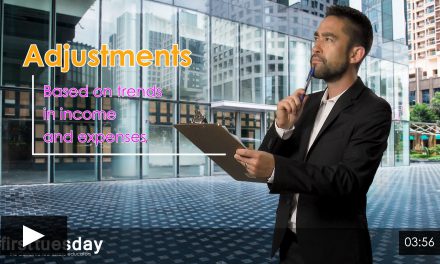Dozens of measures are on California’s November 2020 election ballot, several of which will impact real estate, rent control and property taxes. If passed, these measures will change the state’s landscape for the next decade to come. To this extent, agents and brokers hold an especially large stake in Proposition 15.
What is Prop 15?
Proposition 15 (Prop 15) is a November 2020 ballot measure created to split roll the state’s property tax, subjecting commercial property owners to billions of dollars in additional taxes each year. The measure is aimed at closing a major loophole which allows investors and businesses to take advantage of reduced property taxes each year.
Under the ballot measure, commercial and industrial properties, excluding those zoned as commercial agriculture, would be taxed based on their current market value (CMV). Commercial property owners whose holdings are valued at $3 million or less are also protected from Prop 15.
In addition to small businesses, the bill also carves out an exemption for residential properties, which would remain subject to measures under Proposition 13 (Prop 13). Prop 13 caps property taxes at 1% of the purchase price with annual increases of no more than 2%.
Related Article:
Letter to the Editor: Does California have statewide rent control?
Why the change? Measures similar to Prop 15 have been on several past ballots. The state Legislative Analyst’s Office found market values in California typically increase faster than 2% each year, meaning the taxable value of commercial and industrial properties is often lower than the current market value.
So, what exactly would change?
Commercial properties would be taxed on their CMV instead of their purchase price.
The change from the purchase price to CMV would be phased in beginning the fiscal year of 2022-2023 and occur over three to four years. Commercial property owners affected by Prop 15 would need to pay taxes based on the new assessed value of their property, beginning with the lien date for the fiscal year in which the property’s CMV is reassessed.
The California Legislature would be required to ensure that phase-in provisions provide affected owners of under-assessed commercial and industrial real estate reasonable time to pay any increase in tax obligations resulting from the measure.
Prop 15 would require commercial and industrial real estate to be reassessed at least every three years. Under Prop 13, real property is only assessed when it is sold or undergoes significant construction.
Properties whose business owners have $3 million or less in holdings in California would continue to be taxed based on their purchase price.
Further, the ballot measure would eliminate the business tangible personal property tax on equipment and features for small businesses and provide a $500,000 per year exemption. The California Legislature may not reduce the exemption but may increase it.
Small businesses are defined as those which are independently owned and operated, own California property and have 50 or fewer employees.
Where would the revenue go?
Prop 15 would provide between $6.5 and $11.5 billion dollars in new property taxes funding local schools and governments. Sixty percent would go to cities, counties and special districts, and around 40 percent would increase funding for schools and community colleges.
The measure will distribute the revenue from the revised tax on commercial and industrial properties to the state to:
- supplement decreases in revenue from the state’s personal income tax and corporation tax due to increased tax deductions; and
- counties to cover the costs of implementing the measure.
The state has long searched for a solution to separate commercial and residential property taxes. If passed, Prop 15 will place a bigger tax burden on commercial property owners while residential and small business owners will remain subject to current property tax law under Prop 13. California has found a veritable loophole closer in Prop 15.















This is not a “loophole closer” as the author asserts. Currently both commercial and residential properties are treated the same under Prop. 13 as it should be. Here’s the logic; suppose you made a large purchase 20 years ( a car maybe). You would expect that the sales tax paid on the 20 year old purchase would be a lot less than the sales tax on the same purchase made today – BECAUSE THE COST OF THE CAR WAS SIGNIFICANTLY LOWER 20 YEARS AGO. The same logic applies to commercial and residential real estate.
Secondly, once you allow an exemption or negative change to Prop. 13 the money grabbers in Sacramento will use this “crack in the armor” to eventually get rid of the whole proposition! Don’t let them; this proposition is the only thing preventing whole sale property tax increases that we have seen lately (income, sales, etc.)
Currently many commercial properties are held inside corporations so when they are sold the taxable value does not change (since the buyer is buying a corporation not the property outright by itself).
The loophole is real and should be fixed.
The amount of property tax many companies pay is so small relative to the size of their business it is offensive (imo).
This proposition does what should be done, fixes a problem while protecting home owners and small business.
The “crack in the armor” fear tactic is not sound as the state will get so much tax revenue from this change that they will have no need to change prop 13 in a way that would burden voter/home owners. It may become more expensive to go to Disneyland, Seaworld and Six Flags but this change in tax law will be a HUGE boon to our state treasury eliminating the need to raise taxes on anything else for the foreseeable future.
Something to look for is the value of these properties. Owners can rightfully argue that the value has been greatly reduced due to the change in taxation. If the properties appraised values are dropped significantly than the state won’t get the revenue that they are expecting. I expect this lower valuation situation to happen in a big way.
Nevada looking better all the time…………..